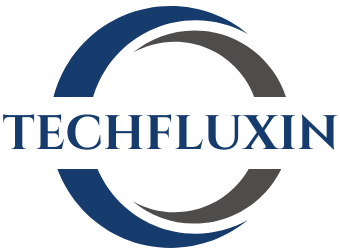Hiring skilled MERN stack developers is essential because a typical software development project requires a combination of technologies to build it. This required set of technologies is commonly referred to as a tech stack. Generally, it includes frameworks, libraries, databases, front-end and back-end tools, coding language, and more.
Among the various options available, the MERN stack offers a considerable advantage over the rest of the available options. MERN stack is a collection of four technologies, all based on a common language, JavaScript. Thus, it simplifies a lot of hassles for large projects that can be complex to begin with.
In this article, we will explore why companies should choose the MERN stack. We will discuss in detail the key advantages and various use cases that give full stack development with MERN an advantage over the other options. Finally, we will go over the best practices to help businesses and developers alike for building scalable and feature-rich web applications.
Let’s Jump in!
What is the MERN Stack?
The MERN Stack is a popular framework for full-stack web development. It combines MongoDB, Express.js, React.js, and Node.js. Using JavaScript throughout, it simplifies creating scalable and dynamic web applications.
Components of the MERN Stack
MongoDB (Database Layer)
- NoSQL database for handling large, flexible data.
- Stores data in JSON-like format, making updates simple.
- Example: Efficiently managing product catalogs in e-commerce apps.
Express.js (Backend Framework)
- Lightweight framework for building APIs and server logic.
- Helps manage HTTP requests, routing, and middleware.
- Example: Quickly setting up APIs for retrieving product details.
React.js (Frontend Library)
- Builds dynamic, reusable user interfaces.
- Uses Virtual DOM for faster updates and performance.
- Example: Creating a responsive product catalog with filters.
Node.js (Backend Runtime)
- Allows server-side JavaScript execution.
- Handles event-driven tasks efficiently.
- Example: Implementing real-time messaging in web apps.
How Does It All Work Together?
- Frontend: React sends requests (like form submissions) to the backend.
- Backend: Express processes these and fetches data from MongoDB.
- Database: MongoDB stores and retrieves data, sending it back to React.
- Integration: JavaScript-based environment ensures smooth communication between the various components.
Key Advantages of the MERN Stack
The MERN stack is a powerful framework for full-stack development. It combines MongoDB, Express.js, React.js, and Node.js. Together, these technologies simplify web development, boost performance, and ensure scalability. These advantages clearly reveal why companies should choose the MERN stack over any other alternatives.
1. Full-Stack JavaScript Development
- JavaScript runs across the entire stack: frontend, backend, and database.
- Simplifies workflows by reducing context switching between languages.
- Example: Use React.js for the UI, Express.js for APIs, and MongoDB for data storage—all with JavaScript.
Benefits:
- Streamlines development and debugging.
- Reduces the learning curve for new developers.
- Encourages team collaboration.
2. High Performance and Scalability
- Node.js: Supports non-blocking I/O for fast backend performance.
- MongoDB: Handles large data volumes and scales horizontally.
- Example: A live chat app processes real-time messages efficiently with Node.js and MongoDB.
Benefits:
- Provides faster response times.
- Scales easily for high-traffic applications.
3. Dynamic Frontend with React.js
- Component-based architecture ensures reusable, modular UI elements.
- Virtual DOM boosts app performance.
- Example: Build dynamic interfaces like a live product search with React components.
Benefits:
- Enhances productivity and app speed.
- Supports complex UIs with ease.
4. Rich Ecosystem and Community Support
- Libraries like Redux, React Router, and Express.js middleware simplify development.
- Large community offers tutorials, forums, and open-source projects.
- Example: Use tools like Passport.js for authentication to save time.
Benefits:
- Reduces development effort.
- Ensures access to updated tools and solutions.
5. Cost-Effective Development
- All components are open-source, saving on licensing fees.
- Faster development cycles mean quicker time-to-market.
- Example: Startups can rapidly build and launch MVPs using the MERN stack.
Benefits:
- Lowers costs for businesses of all sizes.
- Makes high-quality development accessible to tight budgets.
The MERN Stack Development approach is ideal for building modern, scalable web applications. Its versatility supports a range of industries, from e-commerce to SaaS products. However, execution depends largely on the expertise of your team.
Thus, if your development team is not familiar with JavaScript (and JSON), then consider hiring skilled MERN stack developers. They ensure your project benefits from the advantages of MERN stack and can build high performing web applications to meet your business needs.
Use Cases of the MERN Stack
The MERN Stack is a top choice for building modern web applications. Its combination of MongoDB, Express.js, React.js, and Node.js offers efficiency, scalability, and flexibility. These features make it ideal for various industries and application types.
1. Real-Time Applications
MERN Stack applications handle instant data updates and user interactions seamlessly.
- Social Media Platforms: React.js creates interactive feeds, and Node.js handles real-time updates like messages or notifications. MongoDB efficiently stores user data and histories.
- Chat Applications: Node.js’s event-driven architecture supports WebSocket for live communication, while MongoDB stores messages for fast retrieval.
Benefits:
- Ensures fast performance for complex interactions.
- Scales easily for high-traffic, real-time scenarios.
2. E-Commerce Platforms
MERN Stack development is perfect for dynamic e-commerce websites.
- Dynamic Product Pages: React.js enables real-time updates for filters and search results. MongoDB quickly retrieves product details.
- Inventory Management: Node.js ensures accurate stock updates as purchases happen.
- Payment Integration: Express.js handles secure connections to payment gateways like PayPal or Stripe.
Benefits:
- Provides real-time updates for a smooth shopping experience.
- Manages large product catalogs efficiently.
3. Enterprise-Level Applications
The MERN stack is ideal for enterprise tools like project management apps.
- Collaboration Tools: React.js builds dashboards for tracking tasks, deadlines, and progress.
- Task Updates: Node.js manages backend services like notifications and file uploads. MongoDB stores structured data like roles and dependencies.
Benefits:
- Simplifies team collaboration with centralized tools.
- Handles real-time updates effortlessly.
4. SaaS Platforms
SaaS platforms rely on robust, scalable architectures, making MERN Stack web development a strong choice.
- Multi-Tenant Systems: MongoDB stores flexible tenant-specific data.
- APIs for Integration: Express.js simplifies building APIs for connecting with third-party tools.
Benefits:
- Supports scalability and customization for diverse tenants.
- Ensures smooth API-driven integrations.
From real-time applications to SaaS products, the benefits of the MERN stack make it a reliable choice for full-stack development. Its flexibility and performance allow businesses to build scalable and innovative solutions tailored to their needs.
Best Practices for MERN Stack Development
Developing high-quality MERN stack applications requires a thoughtful approach. Following best practices ensures scalability, maintainability, and better performance. Here are five key practices to adopt in MERN stack development:
1. Use a Modular Development Approach
Break applications into reusable and manageable modules to keep your code organized.
- Advantages:
- Simplifies development, testing, and debugging.
- Keeps each module focused on specific functionality.
- Enables better collaboration among team members.
- Implementation:
- Use React.js for building reusable UI components like forms and buttons.
- Organize backend logic in Express.js by separating routes and controllers into feature-specific files.
- Structure MongoDB collections for clear data separation, like users, orders, and products.
Benefits:
- Improves scalability.
- Reduces complexity for future updates.
2. Implement Proper Error Handling
Effective error handling is critical for stable full stack development with MERN.
- Challenges:
- Unhandled errors can crash the app or expose sensitive data.
- Solutions:
- Use Express.js middleware for centralized error management.
- Display user-friendly error messages while logging technical details for debugging.
Benefits:
- Protects against security vulnerabilities.
- Helps quickly identify and resolve issues.
3. Optimize Database Queries
Efficient MongoDB usage is key to handling large datasets and high traffic.
- Best Practices:
- Use indexes for frequently queried fields to speed up searches.
- Apply aggregation pipelines for advanced data processing.
- Monitor query performance and clean up unused indexes.
Benefits:
- Faster query execution.
- Better scalability with large datasets.
4. Use Component Libraries for UI
Enhance user experience by using pre-built UI libraries.
- Advantages:
- Libraries like Material-UI and Ant Design save development time.
- Ensure consistent design with responsive features.
- Implementation:
- Integrate libraries into your application.
- Customize components for branding while maintaining consistency.
Benefits:
- Faster UI development.
- Professional and responsive design.
5. Adopt CI/CD Workflows
Automate testing and deployment for smoother MERN stack web development.
- Implementation:
- Use GitHub Actions or Jenkins for automated pipelines.
- Include unit, integration, and end-to-end tests.
- Deploy to platforms like AWS or Vercel for scaling.
Benefits:
- Faster releases.
- Reliable updates with minimized downtime.
By following these practices, MERN stack developers can deliver efficient, scalable, and maintainable applications. Besides this, keeping an eye on upcoming technology upgrades for the MERN stack is highly crucial to updating your application as and when required. Falling behind on the latest upgrades can degrade the user experience and efficiency.
Conclusion
With a unified JavaScript environment across the frontend, backend, and database, the MERN stack is an ideal option for businesses to build modern web applications. Additionally, its open-source nature ensures a cost-effective scalability option for the future.
The reusable components further add to its versatility, allowing developers to utilize MERN stack web development for various applications, such as SaaS, e-commerce, and more. Thus, for enterprises, opting for MERN Stack development offers measurable benefits, simplifying workflow and speeding up development are just a few.
Its utility and versatility are only limited by the expertise of the development team. Thus, businesses should prioritize upskilling their current team or look to hire experienced MERN stack developers to create impactful and efficient applications for today’s digital needs.

